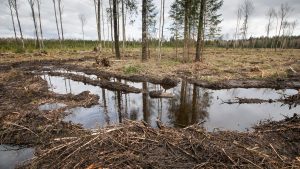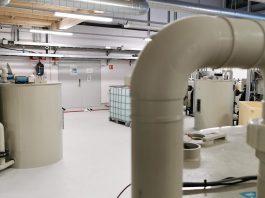The Research Executive Agency (REA), which manages EU research grants, has funded several European research projects on biodiversity protection.
Despite progress since the global adoption of the Convention on Biological Diversity in 1992, the world still faces unprecedented species extinction. Therefore, biodiversity protection is essential in preventing ecosystem degradation, which poses significant risks to human survival and sustainable development.
To mainstream this issue into European national plans, it must be treated as a standalone issue. It requires broad engagement with development sectors and actors to address the root causes, unlock funding, and set a new, strengthened governance framework in motion.
How will the projects accelerate transformative change for biodiversity?
The research projects have been funded in light of the Intergovernmental Platform on Biodiversity and Ecosystem Services’ (IPBES) calls for biodiversity protection in 2019.
The projects will collaborate and create synergies that act in a cluster. The role of the cluster is to elaborate on the main challenges, reflect on new concepts and approaches, and propose solutions to overcome barriers to this issue.
This approach is hoped to provide new elements for the EU Biodiversity Strategy, due to launch in 2030. Moreover, the research should provide outputs, options and evidence for policymakers to accelerate transformative change for biodiversity protection.
Cluster meetings: Which key topics emerged?
On 17 March 2023, REA’s Biodiversity, Circular Economy and Environment unit collaborated with the Directorate General for Research and Innovation to organise the first in-person clustering event in Brussels.
The event brought together representatives of 11 Horizon Europe-funded projects at the cluster’s core. These included the BioValue project, key representatives from six flagship projects and initiatives, and policy officers from the Directorate General for Research and Innovation (DG RTD) and the Directorate General for Environment (DG ENV).
An important topic that emerged from this meeting was the urgency for the cluster projects to disseminate knowledge and provide guidelines on implementing biodiversity protection.
Furthermore, it was stressed that IPBES’ 2019-2030 goals must be met. In particular, the projects were invited to leverage their research results to deliver input in designing the Transformative Change Assessment and the Business and Biodiversity Assessment included in the IPBES 2019-2030 work programme.
The first assessment focuses on the underlying causes of biodiversity loss, transformative change determinants, and viable biodiversity protection options. The second assessment aims to categorise how much businesses depend on and impact biodiversity’s contributions to people.

The road ahead for biodiversity protection
Analysis of the two assessments will be vital to informing policymakers and guiding decision-making in the context of the 2050 Vision for Biodiversity, national biodiversity strategies, and action plans.
Meanwhile, to timely address REA requests, the BioValue and BioAgora projects will design a common strategy for:
- Approaching transformative change;
- Stimulating clustering activities; and
- Mainstreaming the discussion about biodiversity crisis and biodiversity preservation.
Overall, this joint approach will ensure that action favouring biodiversity protection will be more effective and impactful.





